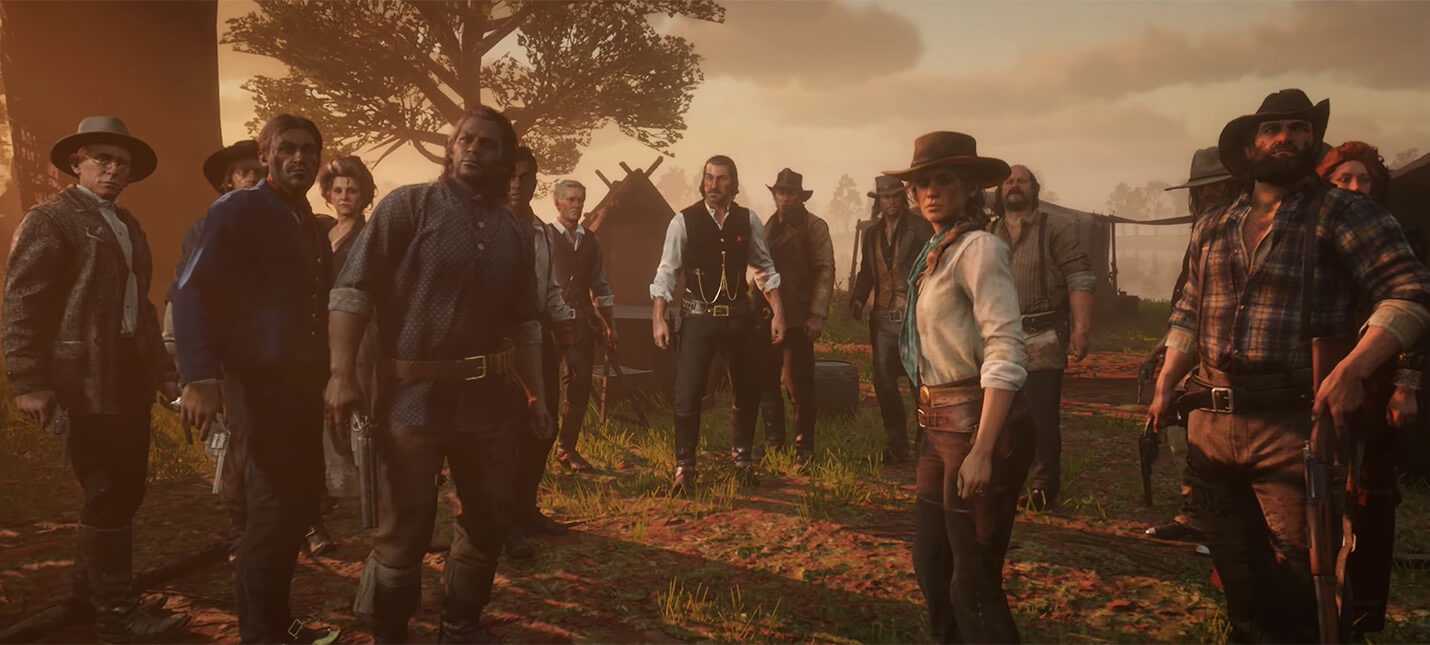Game design in detail. Play rituals, routines and immersion

The mechanics of the game "ritual" is to reproduce things that are commonplace for us in the game. For example, press the elevator button and wait for him to arrive. Moments like this really bring you closer to the character, as the two of you share the same experience. These examples of recreating the routine in the game contribute to a deeper immersion. This is exactly what Brandon Franklin, an independent developer, who uses Jalopy, Red Dead Redemption 2, The legend of Zelda: Breath of the Wild, and TES: Oblivion as examples to explain how gaming rituals can captivate a gamer's attention. We have translated the most interesting for you. After talking with many other developers, Brandon came to the conclusion that gaming rituals change the user's thinking and perception of the world, making other actions, conversations, stories and game choices much more convincing. And so, examples. Rubbish on wheelsJalopy is a road trip game with a car that constantly breaks down and needs repair. The game forces the player to go into details and think carefully about their actions. For example, to refuel, you must: open the trunk, take out the canister, raise the hood, unscrew the gas cap, fill up the gasoline, screw the gas tank cap, lower the hood, put the canister in the trunk and close it. After that, you can hit the road again. Hurray!
This is not the case in regular races. We have an infinite supply of fuel, and pit stops, if any, do not affect gameplay in any way. The main thing is the race itself. But if you add a full-fledged pit stop mechanics to such a game, the essence will radically change. The player will have to think about fuel consumption, change tires for better grip. Such conditions force us to look at the gameplay differently: it is not enough just to drive forward at full speed. And Jalopy just makes you look at travel from a different angle. In the game, through the ritual, a connection is built between the player and the machine, and makes you pay attention to the surrounding world of the game, which can both help you on your journey and become a problem for you. You start thinking about the journey itself rather than how you will get somewhere.
Lock, Stock & RoutineIn Red Dead Redemption 2, you take on the role of a criminal who needs to take care of his camp. The game allows you to rob, kill, and in the meantime go shopping, shave, clean weapons and perform a bunch of side activities.
Interestingly, the developers gave us the opportunity to walk around the camp, study its life and people, but took away the opportunity to run and jump on it like a donkey. The developers wanted the player to perceive its residents as real people.
This ritual gives the player awareness of his actions and restricts him enough to do exactly what the developer wants him to do. Namely, he understood that he belonged to a group of criminals with whom he cooperated and lived. Take a deep breathIn The legend of Zelda: Breath of the Wild, we can interact with the game world in different ways: climb mountains, soar in an airplane, cook or solve puzzles. Cooking food is a wild mixture of crafting, inventory management and research. This mechanic looks like this: you need to select several ingredients from the inventory, which after closing the inventory will be in Link's hands, then you need to bring them to the cauldron and throw them into it; the dish will be automatically prepared, and will have certain characteristics depending on the ingredients.
The developers thus wanted to spur you on to research, so that you experiment with different combinations, and then put them into practice. So, the menu becomes not a way to replace your actions, but to organize them. It's not enough to just go into your inventory and craft an item, you use it to craft in the real world, and it also makes such a routine fun and interesting. Do itAccording to the developer, good design means that the player and the designer can interact and that the first one gets what they want. This is how he recalls TES: Oblivion and treatment. You need to go to the menu, equip the spell, cast it and wait for the mana bar to decrease, filling the health bar.
Let's compare this mechanic to the health regeneration system from Call of Duty Modern Warfare. The advantage of this approach is that it allows the player to concentrate on the main task - to kill enemies. But on the other hand, the user's actions become less varied, and most importantly, auto-regeneration encourages rough and impulsive decisions. This does not work for all games.
Although the same thing happens in the first and second games, in Oblivion additional actions greatly affect your gameplay:
In Call of Duty: Black Ops 4, the developers have reworked the healing system, every few seconds it is possible to restore health by pressing one button in time. In the past, auto-recovery cut off the need to think tactically. In Black Ops 4, the player has to think over their actions more.
ConclusionsGaming rituals change the behavior of the player in such a way that he feels the connection with the game and conflict in tense moments. Such mechanics slow down the pace, which is not always good and should not be used everywhere. However, they work great in games with an emphasis on character story and exploration. If during gameplay the player not only goes through the game, but also thinks about it, then this has a positive effect on the immersion and on the player's interest. The Topic of Article: Game design in detail. Play rituals, routines and immersion. |












